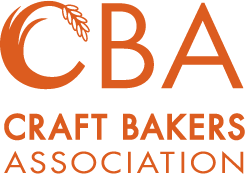Allergen Update
Artisan bakeries selling hot coffee is now commonplace on the high street. Whilst pastries are commonly formulated with wheat, coffee beverages, commonly contain cow’s milk. Wheat and milk are two of the most common allergens in the UK. It is therefore vital that allergen management is an important part of every coffee shop food safety regime.
Plant based milks are also a good option for consumers with a milk allergy including as a dairy substitute. This has provided an opportunity for some businesses to offer ‘free from’ beverages.
In a response to an increase in milk allergy incidents, concerned food safety officials have recently undertaken several local surveys to check for the presence of dairy milk in a takeaway drink requested to be made using plant-based milk. Results of the survey showed that a significant number of these products contained cow’s milk, either from cross contamination or by errors made at the point of preparation.
Many small coffee shops are restricted for space, meaning that design and layout of coffee making areas does not always make it possible to provide genuine ‘free from’ beverages. Some of the national coffee shop chains do not make ‘free from’ claims associated with plant-based milk drinks and use precautionary allergen labelling (PAL).
PAL is used to warn customers that one or more regulated allergens could be unintentionally, but unavoidably, present in a product, and thus pose a risk to susceptible consumers i.e., ‘a may contain statement’. However, a precautionary allergen label should only be used after a thorough risk assessment has been completed to demonstrate that trace allergens cannot be removed through risk management actions.
PALs should never be used as a substitute for good hygiene and/or safety practices. Enforcement officers will always challenge a PAL and ask to see evidence of the risk assessment used to justify it’s use.
It doesn’t always take large amounts of an allergen to cause sickness or even death. Accidental cross-contact can put a person at risk. Allergen Bureau’s VITAL research suggests that the levels needed to cause a reaction to milk in the 1% most sensitive individuals is 0.2 mg.
Using the same steam wand and the same jug to handle different milks could trigger a reaction in someone, even if they are rinsed and wiped, it is possible that they may still contain microscopic amounts of the offending allergen. When the shop gets busy with long queues of customers waiting for their coffees, short cuts made in the cleaning process are a potential problem.
I have read on some allergen blogs that even milk vapour in the atmosphere caused by steam wands can cause a reaction for some. It is therefore safe to assume that milk aerosols will eventually fall onto equipment and surfaces.
It may please you to learn that the Craft Bakers Association is represented on a Primary Authority Hospitality Panel. Recently some of its members have raised the issue that some coffee shops are facing increasing challenges regarding the increased frequency of local authority’ sampling of plant-based milk beverages, and the further challenges this raises due to some officers’ expectations around businesses being able to fully control the risk of allergen unintentional cross-contamination concerned with these products.
If there is not complete separation of expresso machines used for milk alternatives, including separate areas where they are housed, it is quite difficult to be fully confident that milk allergen cross contamination is being effectively controlled. Therefore, it a sensible solution is to inform the consumer that trace levels of milk allergen is likely to be present. In other words, the use of a precautionary allergen statement.
In the meantime, the Primary Authority Hospitality Panel are planning to set-up a sub-group with the assistance of the FSA to support coffee shops and influence change by creating new policy and educational resources for businesses and local authorities. The aim is to focus on the issues impacting on coffee shop’ operating models and to tackle the misconceptions whilst harmonising best practice to improve consumer and regulatory awareness, particularly around allergen management.
